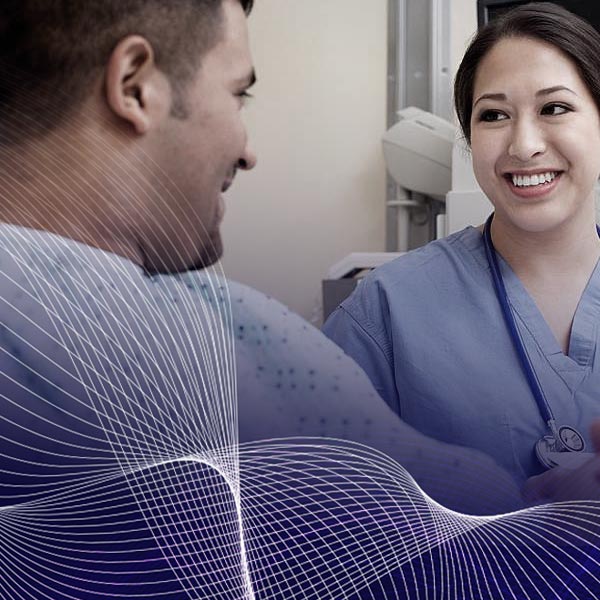Improve Data Interoperability
in Your Next Decentralized Clinical Trial

SPEAKERS:
SINA ADIBI, President and CEO, Adaptive Clinical Systems
SAM DRANOFF, VP, Business Development, Adaptive Clinical Systems
“If data is the life blood of a clinical trial, then data interoperability is the pulse that brings that science to life”. – Sam Dranoff
“DCTs have liberated data management”. – Sina Adibi
Many clients tell us that they have data, but they can’t make it all work together. Sponsors, CROs, eClinical partners, and sites all struggle with data interoperability, even though they often have robust reporting offerings. In a recent webinar, Adaptive Clinical shared both commercial and technical perspectives on issues, challenges and solutions for planning and executing interoperable data in hybrid or decentralized clinical trials (DCT). The panelists looked back on the year as they tackled four topics, and a few key highlights from the discussion are included below.
Check out the replay here.
Note: This webinar includes a demonstration of data captured from a remote patient monitoring device.
Role of the Patient in DCT & Implementing new technologies when the Patient IS the Source

Recruitment is the largest leading indicator of study progress. How well an organization adapts to remote patient recruitment and retention in the post-COVID world is critical for how their studies will perform. The Pharma industry is increasingly turning to non-traditional healthcare data sources that can be repurposed, such as: hospital information systems, insurance claims data, and Patient Communities. The challenge here is how to make the data uniform so that when aggregated you can meaningfully search it and use it quickly for recruitment. Carefully planning and selecting tools that let you perform that task is important.
Once the patient is identified, then you need to be prepared and expect that data collection is going to be very different in a DCT. In the past the patient would come to you, but now, sponsors and CROs must plan on going to the patient for the visit. While advancements in telemedicine have made that easier, not all aspects are completely automated. Many are conducting hybrid models where nurses visit patients at home, but less frequently than it used to be.
In many cases, the patient directly enters the data. Therefore, easy to use technologies that a patient can pick up and use without extensive training are key. So, the choice of tools that we use for direct patient data gathering and how to best harmonize these diverse data sets become an important part of the study managers responsibilities.
Managing A Diverse eClinical ecosystem
Twenty years ago, there were a few dozen eClinical vendors. The EDC was the first tool to get established as a “must have”, mostly because of FDA guidance and mandates. Stakeholders are now looking to incorporate a plethora of tools, such as: EDC, CTMS, eSource, ePRO, eCOA, analytics, site solutions, and more. These tools are available with different levels of sophistication and are often bundled with other capabilities.
As an example, we are seeing CTMS move from something that was in use by large pharmaceutical companies to become a necessary piece of small to mid-size CROs’ toolkits. There is a great deal of overlap between the data that is captured and stored in an EDC and a CTMS. Keeping these “overlap” data elements is going to be critical. Clinical operations and study managers must plan for and manage how to automate the transfer of data from each of these systems to the other. This is just as important as selecting the tool itself. DCT is forcing many clinical operations to insist on choosing tools with open APIs, and then seek fully integrated platforms. Adaptive Clinical helps its customers make these disparate, and often, overlapping data sources interoperable and allow the data to become actionable faster.

Remote Patient Monitoring & Integrating Medical Devices

The medical device industry and mHealth markets are booming. As DCTs take hold, the era of DaaS, or Device as a Service, is upon us. Watches, mini-ECG readers, wearable glucose monitors, and more, all are part of a $12B medical device market that’s growing at 50% annually. That growth curve will exponentially increase the volume and velocity of data that we need to interoperate into our clinical trial workflows. Medical device technologies are quite different from the technologies that most clinical operations and study managers are used to using. Truly, a new wrinkle in our world brought about to a great extent by DCT.
As “The Patient became the Source,” wearables and devices became an important part of directly capturing data without bothering the patient. For the most part, these devices produce data in highly proprietary formats that are only made available to select third-party tools under strict data transfer agreements. This means that whilst data can be captured directly from the patient; and in real-time, study managers have no way of easily getting it out. There are Healthcare IoT platforms out there, but they all operate with the premise of pushing the data to an EHR. Adaptive Clinical helps its clients directly capture the relevant data in a configurable way from the devices.
Transforming Study Data Management
Now, let’s move to our last question and topic, transforming the expanding uses of study data management. DCTs have liberated data generation throughout a distributed and disparate ecosystem. This creates new challenges for data aggregation, harmonization, and integration. At the same time, we’re all under pressure to speed better medical treatments to market. This is achieved through improvement in quality, time, and cost. For example, we can add a new data stream, like medical claims data, and improve outcomes specificity, but not at the expense of significant added cost. We need tools that meet the challenges of DCT, that can interoperate all these data flows – and proactively raise or eliminate issues early in the study.
Data interoperability is a critical, table-stakes capability for conducting good DCTs. That means using data from all parts of the study – in real-time – to glean 360⁰ views of the Patient. In 2021, we saw data management transform itself into data science. If data is the life blood of a clinical trial, then data interoperability is the pulse that brings that science to life. Adaptive Clinical Systems has launched Adaptive DataVIEW to better enable data visualization for study management.

